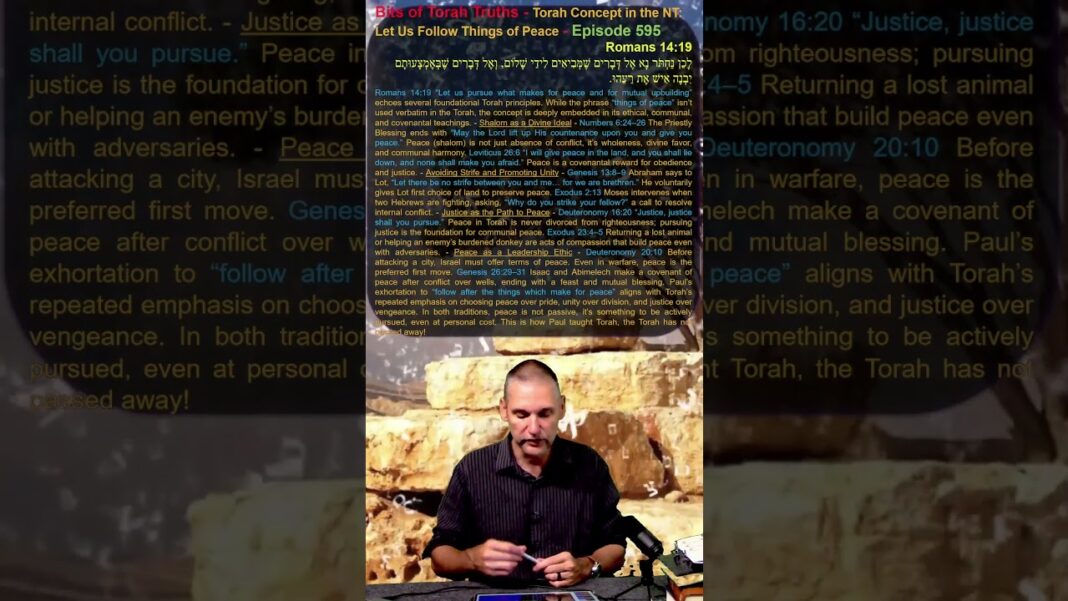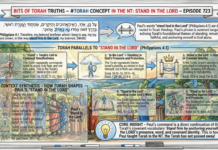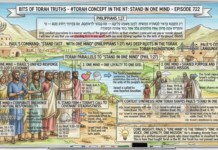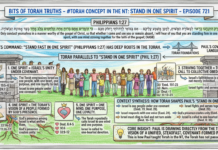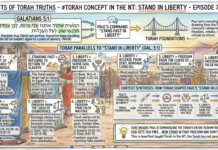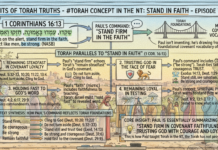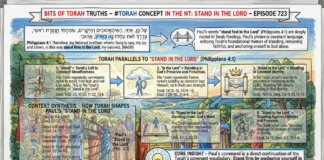Bits of Torah Truths – Torah Concept in the NT: Let Us Follow Things of Peace – Episode 595
Romans 14:19
לָכֵן נַחְתֹּר נָא אֶל דְּבָרִים שֶׁמְּבִיאִים לִידֵי שָׁלוֹם, וְאֶל דְּבָרִים שֶׁבְּאֶמְצָעוּתָם יִבְנֶה אִישׁ אֶת רֵעֵהוּ.
#torah #torahwisdom #torahtruth #torahforlife #torah4you #torahtruth
Romans 14:19
14:19 So then we pursue the things which make for peace and the building up of one another. (NASB)
https://www.matsati.com/index.php/category/bits-of-torah-truths/
Romans 14:19 “Let us pursue what makes for peace and for mutual upbuilding” echoes several foundational Torah principles. While the phrase “things of peace” isn’t used verbatim in the Torah, the concept is deeply embedded in its ethical, communal, and covenantal teachings. – Shalom as a Divine Ideal – Numbers 6:24–26 The Priestly Blessing ends with “May the Lord lift up His countenance upon you and give you peace.” Peace (shalom) is not just absence of conflict, its wholeness, divine favor, and communal harmony. Leviticus 26:6 “I will give peace in the land, and you shall lie down, and none shall make you afraid.” Peace is a covenantal reward for obedience and justice. – Avoiding Strife and Promoting Unity – Genesis 13:8–9 Abraham says to Lot, “Let there be no strife between you and me… for we are brethren.” He voluntarily gives Lot first choice of land to preserve peace. Exodus 2:13 Moses intervenes when two Hebrews are fighting, asking, “Why do you strike your fellow?” a call to resolve internal conflict. – Justice as the Path to Peace – Deuteronomy 16:20 “Justice, justice shall you pursue.” Peace in Torah is never divorced from righteousness; pursuing justice is the foundation for communal peace. Exodus 23:4–5 Returning a lost animal or helping an enemy’s burdened donkey are acts of compassion that build peace even with adversaries. – Peace as a Leadership Ethic – Deuteronomy 20:10 Before attacking a city, Israel must offer terms of peace. Even in warfare, peace is the preferred first move. Genesis 26:29–31 Isaac and Abimelech make a covenant of peace after conflict over wells, ending with a feast and mutual blessing. Paul’s exhortation to “follow after the things which make for peace” aligns with Torah’s repeated emphasis on choosing peace over pride, unity over division, and justice over vengeance. In both traditions, peace is not passive, it’s something to be actively pursued, even at personal cost. This is how Paul taught Torah, the Torah has not passed away!
